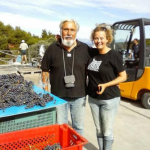ZAGREB, November 10, 2018 – A survey conducted regarding non-working Sundays shows that Croatia is the worse EU member state when it comes to work-life balance, with 90% of Croatians supporting introducing Sunday as a non-working day, a conference called “The Culture of (Non)Working Sundays” was told in Zagreb on Friday.
The conference, organised by the European Sunday Alliance with the support of the Konrad Adenauer Foundation, underscored that it is open to dialogue in an effort to achieve a solution that will protect workers without encroaching on the interests of employers and tipping the balance in society.
50% of employees in Croatia in ‘red zone’
Croatian MEP Marijana Petir presented the results of a survey conducted by the MediaNet agency which indicate that in Croatia, 50% of respondents are employed in the “red zone,” that is, they work overtime, and that Croatia is at the very top of the ranking according to Eurostat with regard to working on Sundays.
“Surveys indicate that Croatia ranks last when it comes to work-life balance, scoring only 3.7 on the score level. At the same time, the Netherlands has the highest score that amounts to 6.6 and that 90% of Croatians support introducing Sunday as a non-working day,” Petir said.
She recalled that the Retail Act had been amended twice, yet the Constitutional Court quashed both rulings due to objections by retail chains.
Turnover higher on Fridays, 50% lower on Sundays
Despite claims by individual retail chains that their highest turnover is on Sundays and if stores were to be closed on Sundays they would suffer significant losses and would have to fire workers, the Tax Administration’s data, however, shows a different picture – turnover is the highest on Fridays and is 50% lower on Sundays compared to Fridays, Petir underscored.
“That is why it is important to launch a dialogue in order to achieve a solution that won’t cause a rift again but that we will have a solution that will be at the service of workers without encroaching on the interests of employers,” she said.
Petir said that there is no EU regulation concerning weekend work and that that was up to each member state. She called on the government “to ensure a free Sunday for all employees, especially for those working in stores and retail.”
The director of the Franciscan Institute for the Culture of Peace, Božo Vuleta, claimed that Sunday and holiday retail trading doesn’t have a positive impact on general economic activities but that it does adversely impact the quality of life for individuals, families and society, affecting health, demographic trends, migration, social cohesion and so on.
For more on the conservative movement in Croatia, click here.









